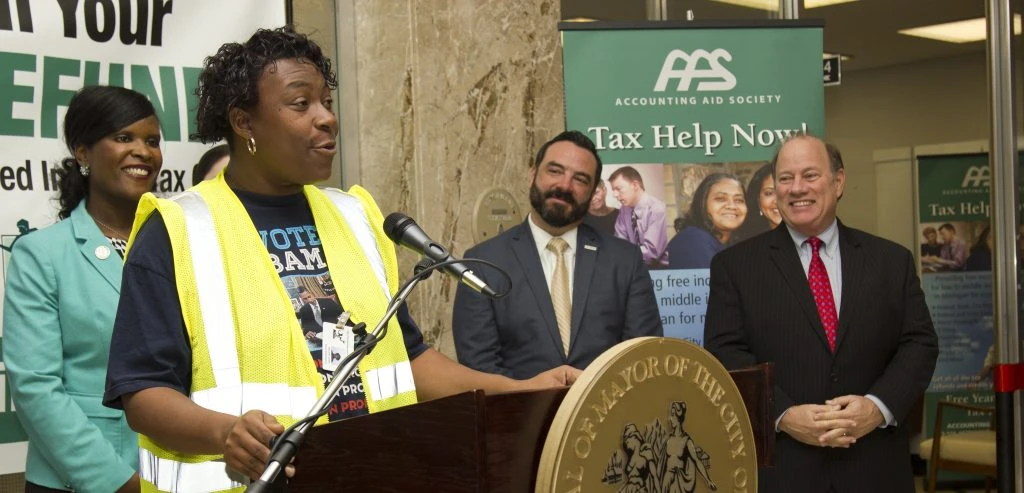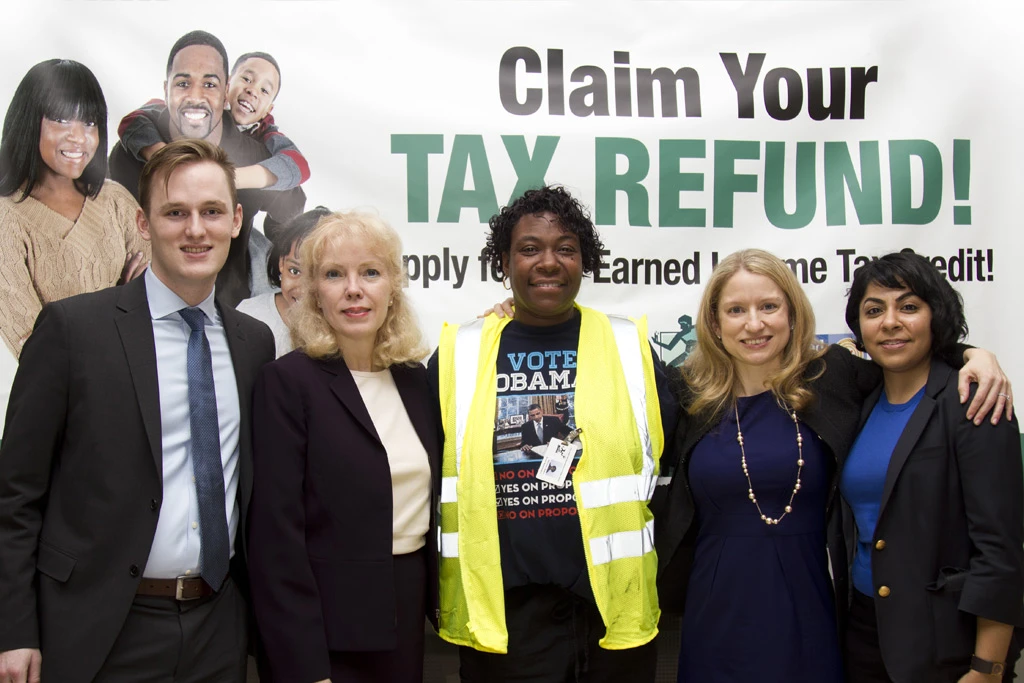Detroit
Claiming Tax Credits in Detroit
In Detroit, Bloomberg Associates helped eligible low- to-moderate-income workers claim the Earned Income Tax Credit.
To help put $74 million extra dollars into the pockets of Detroiters, that’s a heck of a return on [the Mayor’s $200,000] investment.
Rose Gill, Bloomberg Associates
Relevant Expertise
Enhance City Communications and Resident Engagement
- PSAs and Marketing Campaigns
Support Marginalized and Vulnerable Populations
- Financial Assistance Access (EITC)
Challenge
The federal government offers the Earned Income Tax Credit as a benefit for low- to moderate-income workers, yet many who are eligible do not apply. In Detroit, 80% of those who are eligible were not applying, despite the fact that Detroit has one of the lowest median incomes and highest poverty rates in the country. Bloomberg Associates advised Mayor Mike Duggan on this valuable opportunity to improve residents’ fiscal health, and helped to develop a campaign to increase awareness and claims.


Approach
Bloomberg Associates set out to create awareness about the availability of this tax credit. We proposed a multi-pronged approach that included the use of traditional media and community groups to spread the word that Detroiters are leaving money on the table.
A working group was formed around two key elements. First, a communications campaign encouraged Detroiters to file their taxes—the only way to claim the earned income tax credit. Mayor Duggan kicked off the campaign with a press conference, which sparked remarkable news coverage. In addition, notices went out in water bills, ads were placed on buses and billboards, and local nonprofits spread the word among their clients. Second, the group expanded the network of free tax help available to Detroiters. A new virtual tax-prep program called “Drop and Go”, modeled after a program pioneered in NYC, gave residents the option to leave their tax information to trained volunteers, who then completed the returns before residents signed and filed them. In 2017, 292 returns were filed this way.
In addition, we used data and mapping to determine which eligible residents were not claiming their income tax credit. After collecting state data about who was filing, as well as state income data, we mapped where non-filers were living to identify hotspots where we could put up billboards, send out fliers, and create sites for free tax preparation services.
Impact
In 2016, low- to-moderate-income households in Detroit left upwards of $80 million in unclaimed money by not claiming the credit. It was estimated that about 26,000 Detroit households were eligible for the credit but did not file tax returns to apply.
After a targeted awareness campaign that began in 2016, city officials say an average of 12,000 more Detroit residents each year have claimed their EITC. On average, $59 million more is being claimed each year.
About $300 million has been claimed on average annually for the 2016-2018 tax years by Detroiters. The average EITC refund for Detroiters over that period is $4,900. The amounts represent a combination of state and federal earned income tax credits. Over 85,000 Detroiters on average took home the EITC during the campaign’s first three years.
The 2018 EITC campaign yielded a 25% increase in EITC returns prepared by the Accounting Aid Society, compared to the same period of time in 2016.

Metrics
$178M increase in EITC claims by Detroiters from 2017-2019
25% more returns filed in 2018 than 2016
36K+ additional residents who applied for EITC from 2017-2019